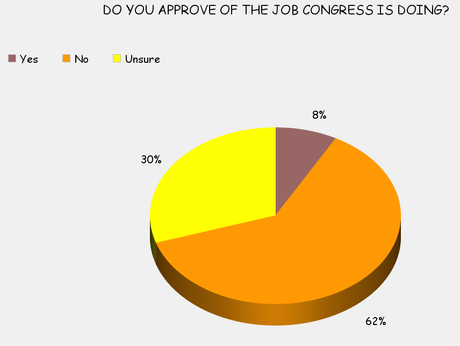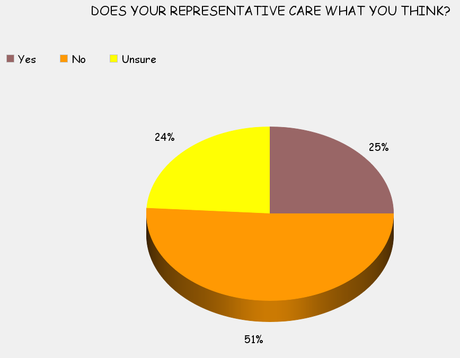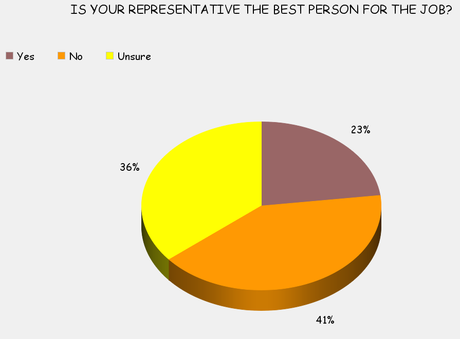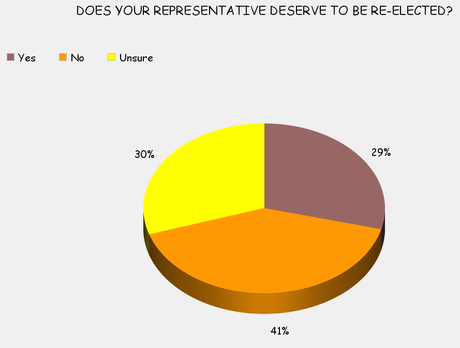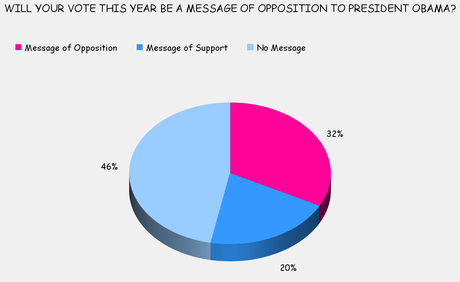
In spite of the fact that President Obama's job approval rating is about 40 points higher than that of Congress, pundits keep on trying to make the case that this election is a referendum on the presidency of Barack Obama. It's not. The people made their feelings about the president clear in 2008 and again in 2012. They know who is up for election this year -- Congress (and they are very angry with them).
Now a poll has jumped on board the Obama referendum bandwagon. It is the Gallup Poll (conducted between September 25th and 30th of a random national sample of 1,095 registered voters, with a margin of error of 4 points). The headline on their poll release made it sound like this election really is a referendum on the president, and they try to back that up by pointing out that the number of people (32%) who say their vote will be a message of opposition to the president is very similar to the percentage in 2010. Results of the poll are illustrated by the chart above.
But there are some things they've had to overlook to reach their conclusion:
1. That 32% is about the number of Republicans (and Republican-leaners) who wouldn't vote for a Democrat no matter who the president was or what they thought about him.
2. The 2010 election was an aberration -- where racist teabaggers turned out in huge numbers (upset at having a Black president), while Democrats and Independents (satisfied with the election of 2008) stayed home in far too large numbers. The 2014 election is not going to be a repeat of 2010, because Democrats learned a lesson in 2010 and are working much harder to get out their vote.
3. The voters are angry with Congress, and are in a definite anti-incumbent mood.
I still believe the driving force in this off-year election is the angry anti-incumbent mood of voters across the nation. There are some safe seats for both parties, but there are also a lot of seats that are competitive seats in Congress -- and it is in these seats that the anti-incumbent vote will be a determining factor. And since the Republicans hold a significant majority of those competitive seats, they are the party that should be the most worried about the upcoming election. This anti-incumbent mood of voters is illustrated by the charts below (made from information in a Rasmussen Poll conducted on September 25th and 26th of a random national sample of 1,000 likely voters, with a 3 point margin of error).
While the pundits continue to live in their own dream world, the public knows what this election is about (Congress) -- and they are ready to display their anger at the ballot box.
